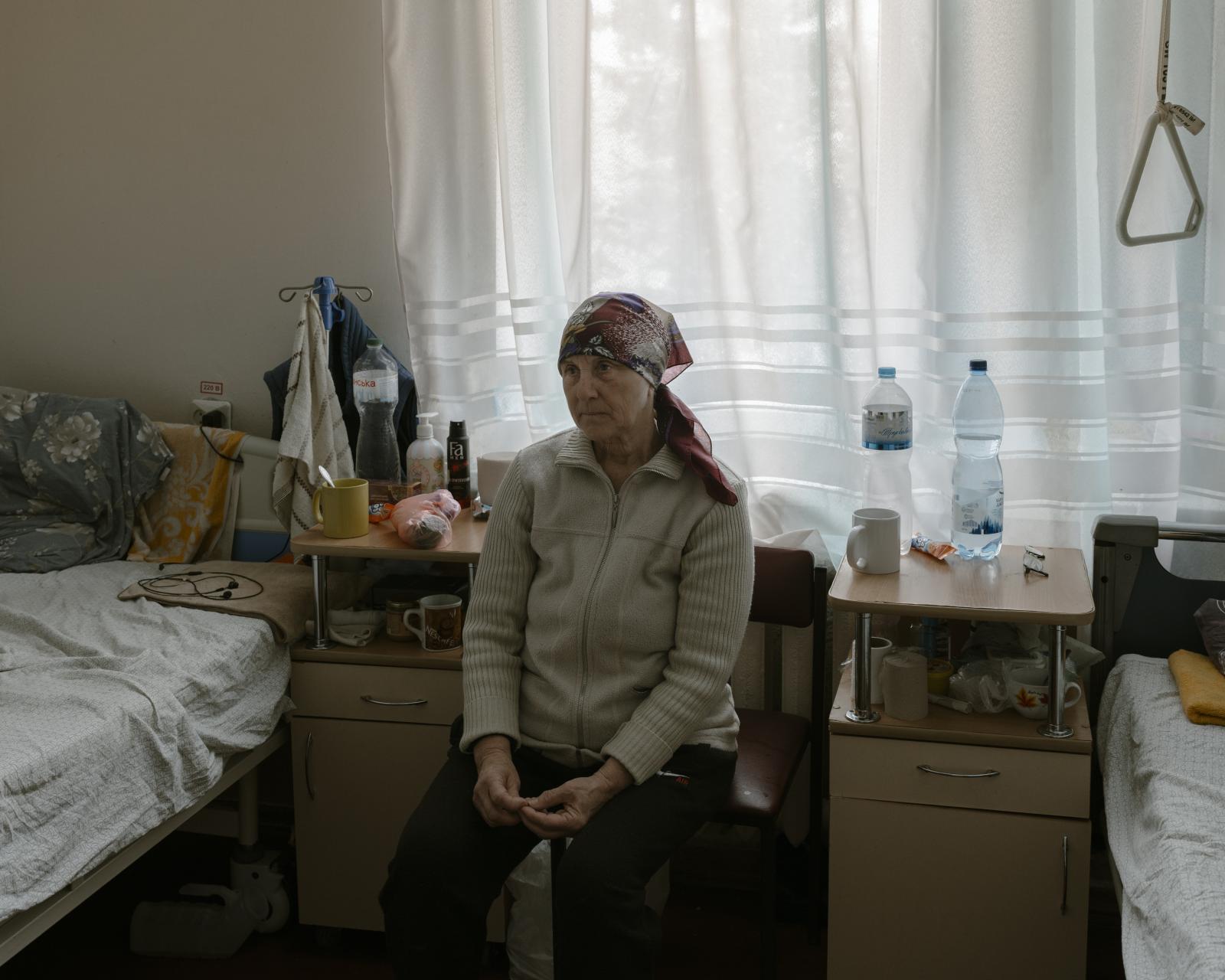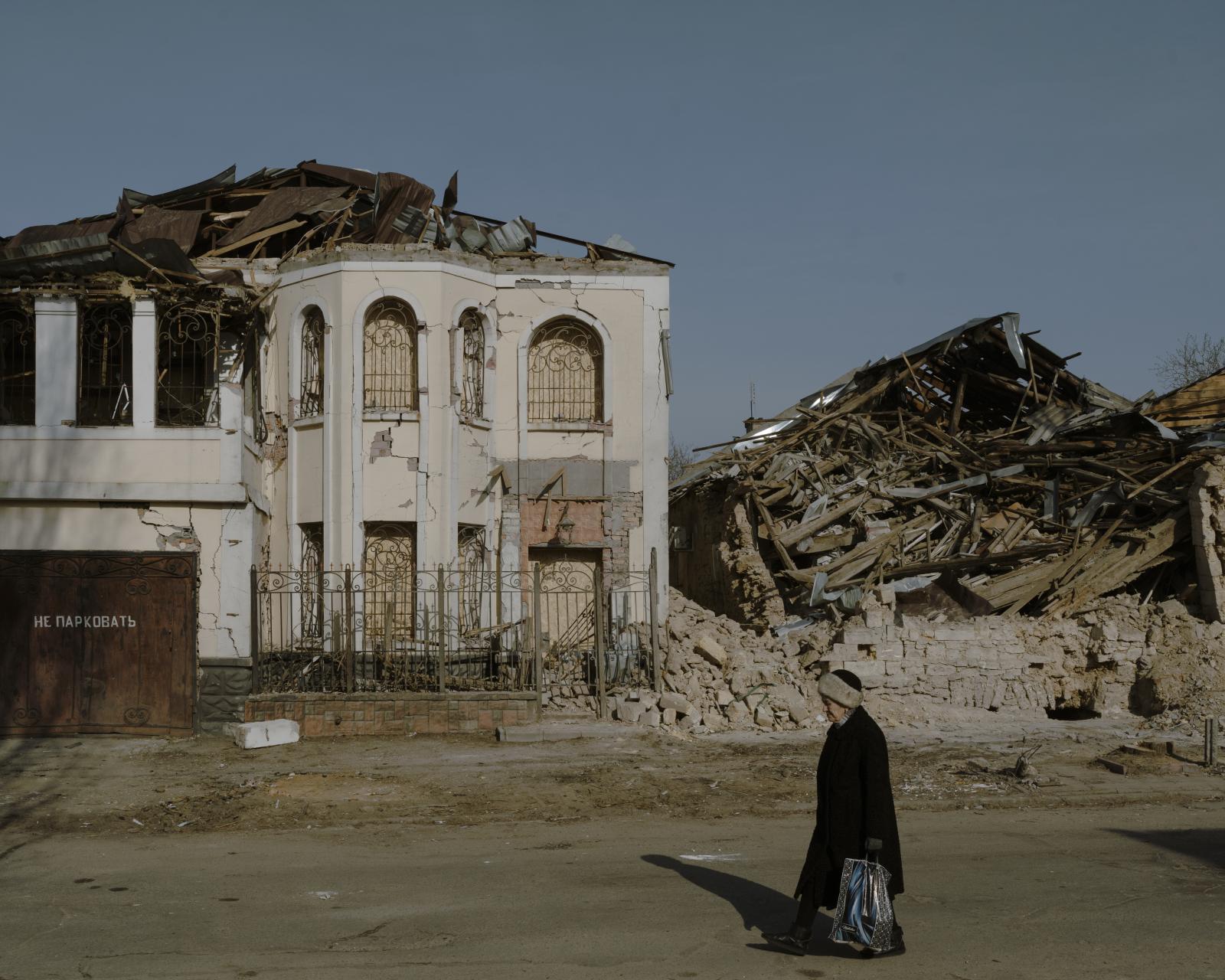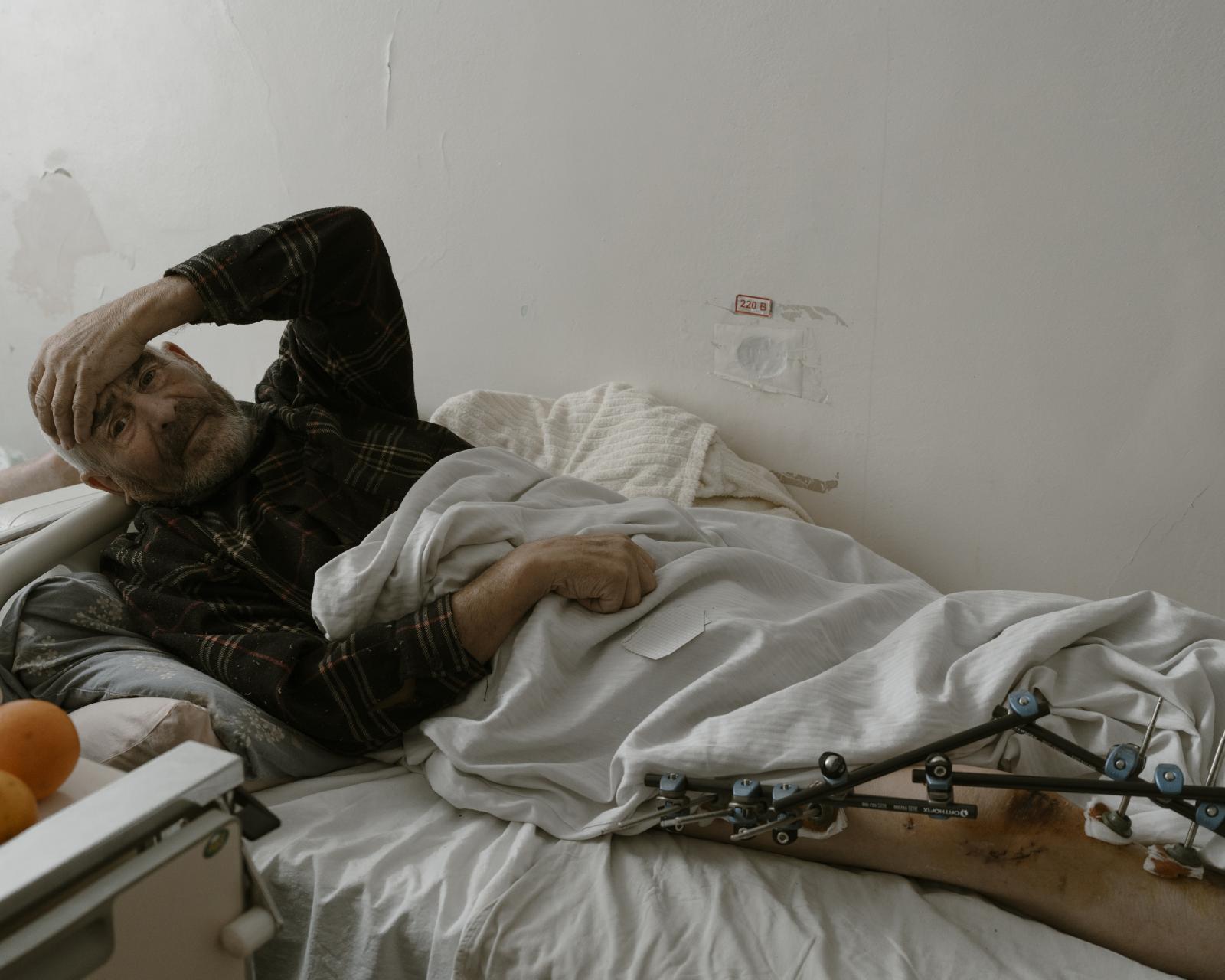Public Project
Focus Magazin: Russian drones hunt civilians in Kherson.
For FOCUS Magazine: A city that is not allowed to rest, where every day means survival: Russian drones hunt civilians in Kherson. War crimes occur every day, says the local prosecutor.
For the past six months, there has been an increase in attacks by drones that kill civilians in the frontline city of Kherson. Videos of drones chasing people fleeing on bicycles, on foot or in cars have been circulating on Russian-language Telegram channels. The drones kill or injure all those who cannot flee. Like Petrov Yehorovych. He was wearing civilian clothes when he was hit by the explosives.
Petrov Yehorovych is an emaciated man with a toothless smile. The 79-year-old is lying in a hospital in Kherson in the south of Ukraine, just a few blocks from the frontline. The air in the room is stuffy, curtains hang in front of the windows, the roar of artillery penetrates the walls and the windows shake repeatedly from the shockwaves of the shots. Yehorovych speaks loudly, his hearing has been impaired since the shockwave from a drone explosion ruptured his eardrums. Shrapnel shredded his lower leg bone in several places, a wire frame and bandages hold his right leg together. Yehorovych sighs, while telling his story.
The hospital run by chief Surgeon Witalij Khomukha (42) is one of the last to treat patients so close to the frontline. Barricades hide the entrances, sandbags lay in front of the windows of the first floor as protection against shrapnel. Not a day goes by that he doesn’t think about leaving the city, he says. But then who would then take care of the wounded?
The Russian army has divided Kherson into two zones: The areas on the riverbank are in the red zone, and anything that moves there is considered a legitimate target. While life in the rest of the city continues more or less normally, with people sitting in cafés or doing sport, the red zone is covered in a frightening silence, punctuated by the thunder of artillery. Hardly any pedestrians cross the sidewalks, the few cars in the streets drive fast. At night, Kherson is plunged into darkness, with no streetlights or neon signs to make it easier for the enemy to find their targets.
She would like to escape - but where to?
Natalia Andreevich’s house is located in the city’s red zone. Anyone who lives there is considered a legitimate target by the Russians. Natalia has been nursing her hospitalised husband for a month now. She says she can no longer go home anyway. The Russian army attacked her house four times, artillery shells punched holes in the garden, the roof and the sidewalk. Normal life is no longer possible in the neighborhoods along the river.
“Everything we’ve spent a lifetime building is here in Kherson: the house, the garden. This is our home,” says Natalia Andreevich. The artillery explosions outside the window become louder, more regular. For a moment, no one in the room speaks. Then Natalia says: “If we flee, we’ll have nothing, and if we stay, we’ll die. We’re caught between the fronts.”
Natalia Andreevich and her husband would like to move away, but they can’t afford it. Their joint pension of the equivalent of 80 euros a month is neither enough to escape nor to live elsewhere in the country.
Just a few kilometers from the front line, Oleksii Butenko documents the daily attacks. The public prosecutor collects the reports in a folder that lies on his desk in front of him - human fates, printed on paper and filed in folders. Every few weeks he has to move his office to a new underground location for fear of targeted air raids. Butenko speaks objectively and calmly.
“We have registered 1591 drone attacks here in Kherson so far,” says Butenko. Pause. “1000 people have been injured.” A pause again. “116 dead.” Double strikes also occur: The drones attack civilians, then wait until the emergency services arrive on the scene and strike a second time. Not all of the attacks can be documented; in some corners of the city, not even the law enforcement authorities can enter, as the frequency of attacks is so high, says Butenko.
Attacking civilians or the wounded violates international law and international agreements such as the Geneva Convention. Butenko and his team want to bring these war crimes to court. This is their hope.
Text by Merlin Gröber, with the help of Alexey Sandakov.
2,706












